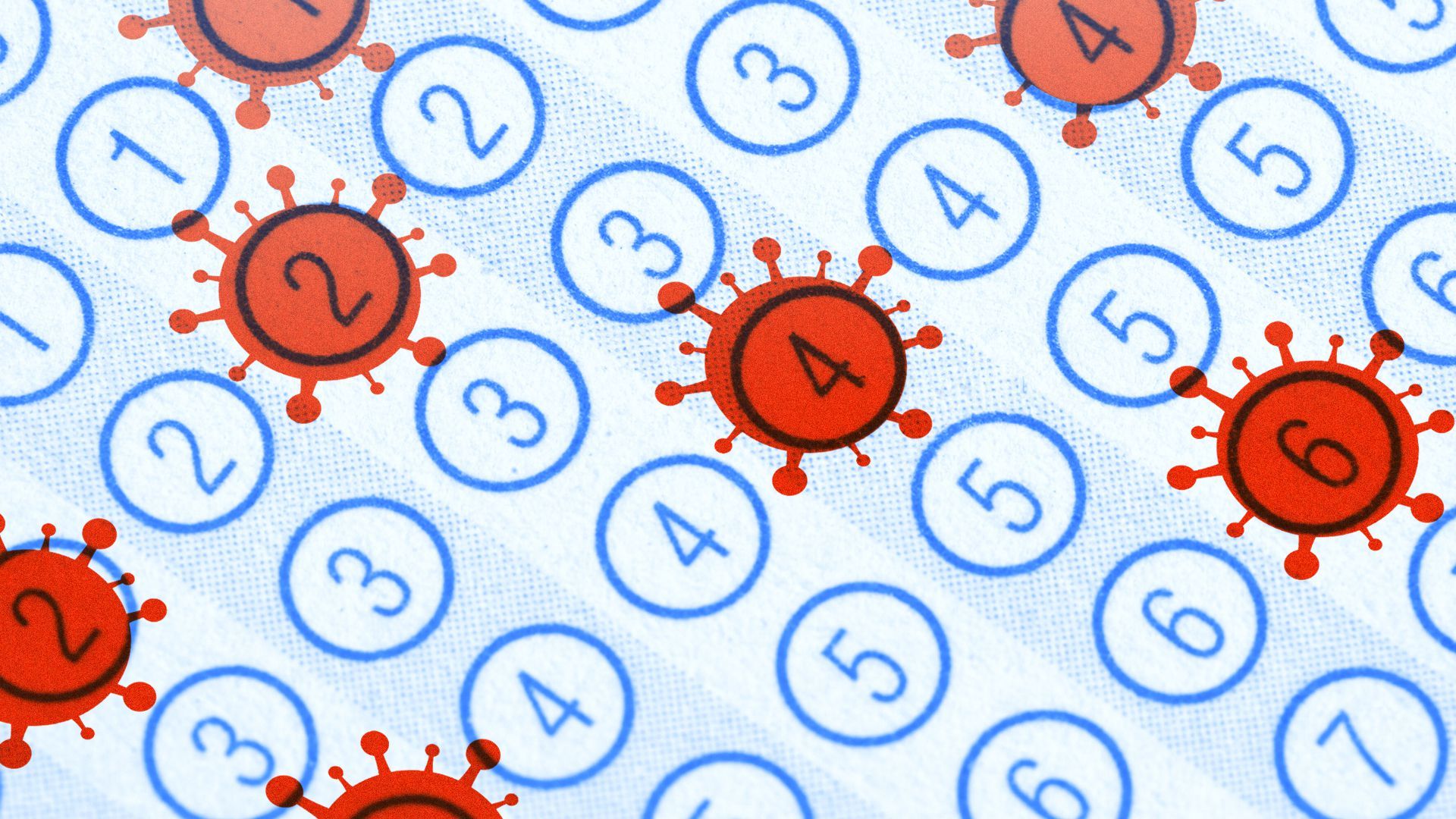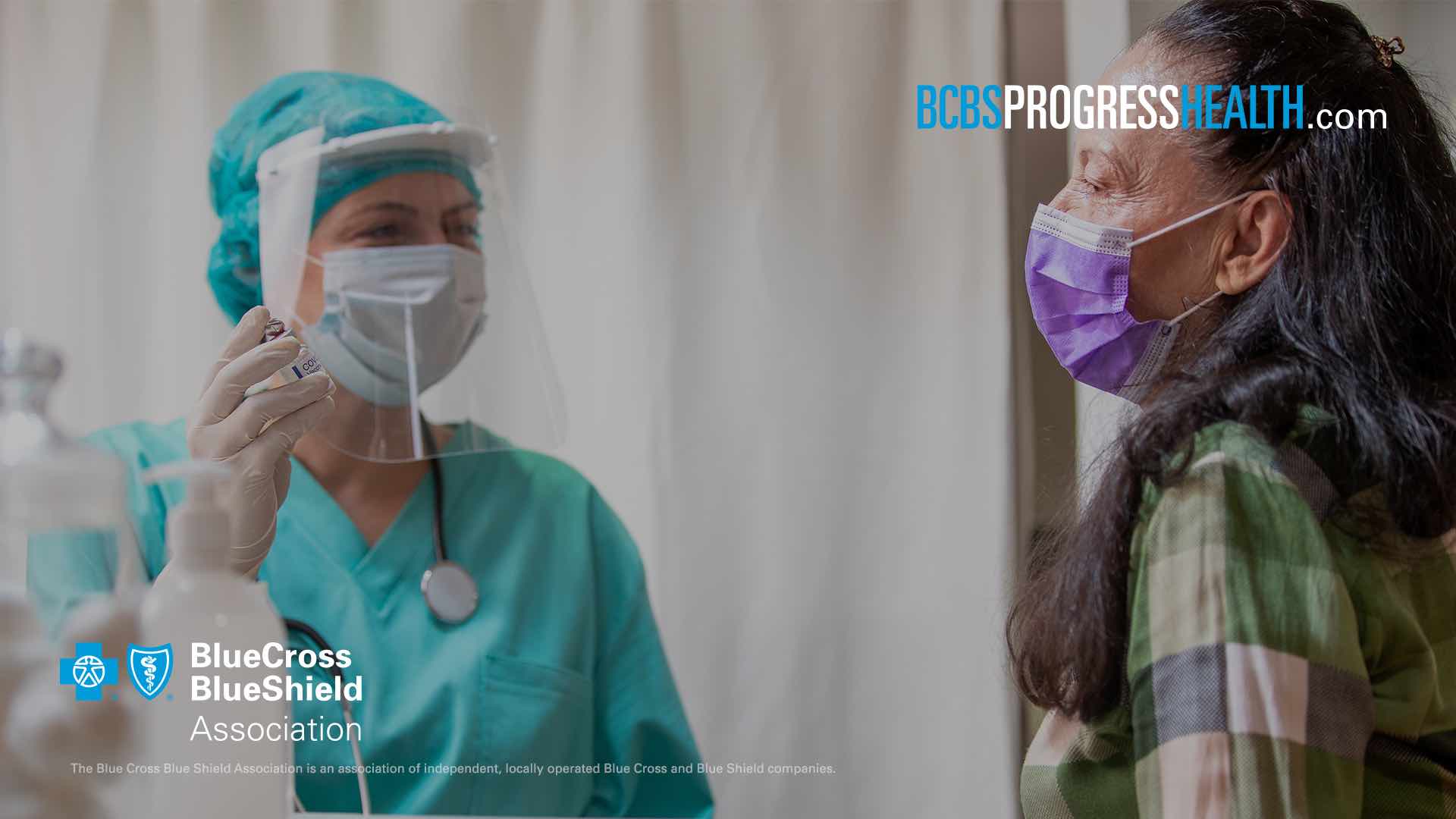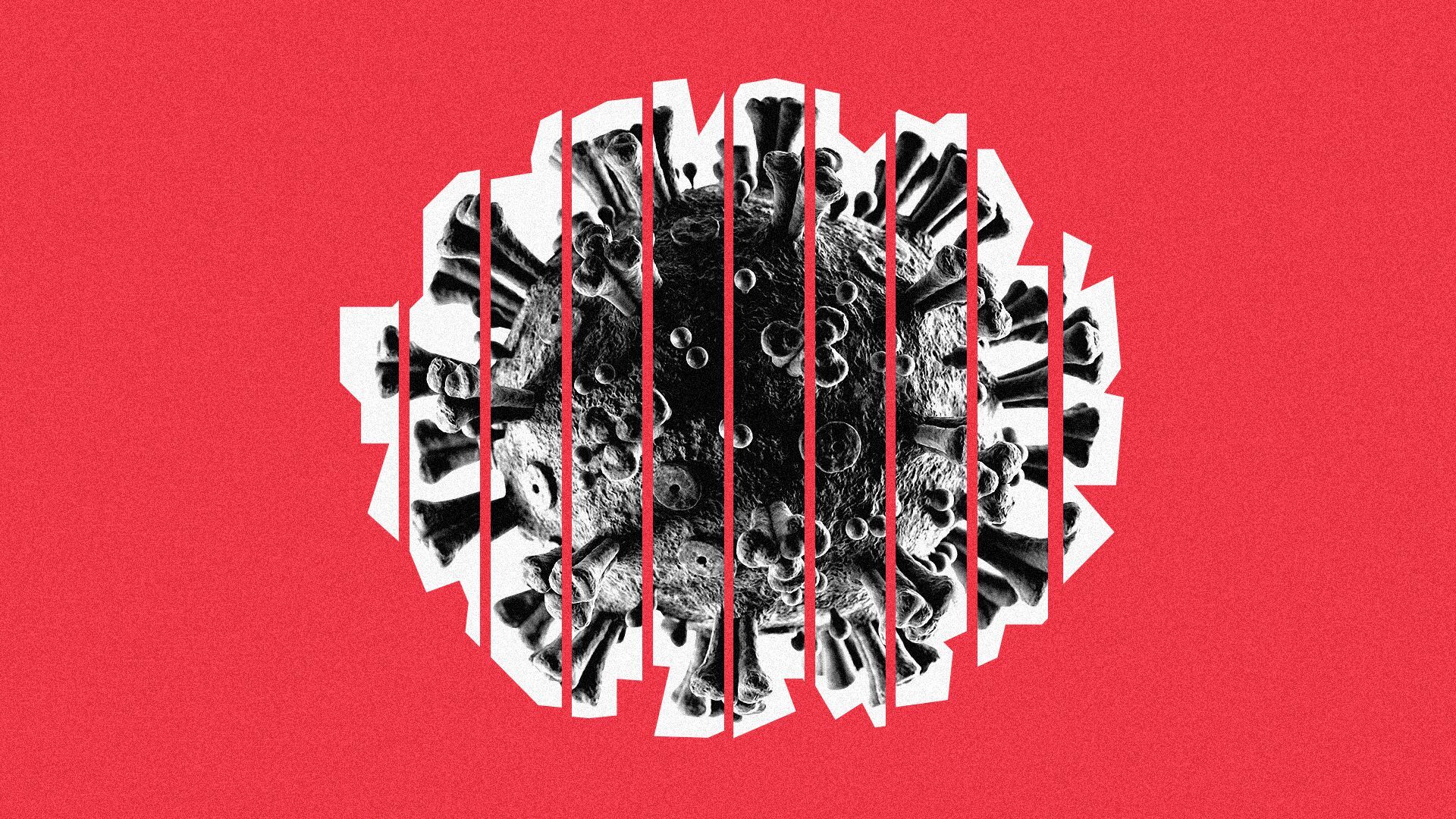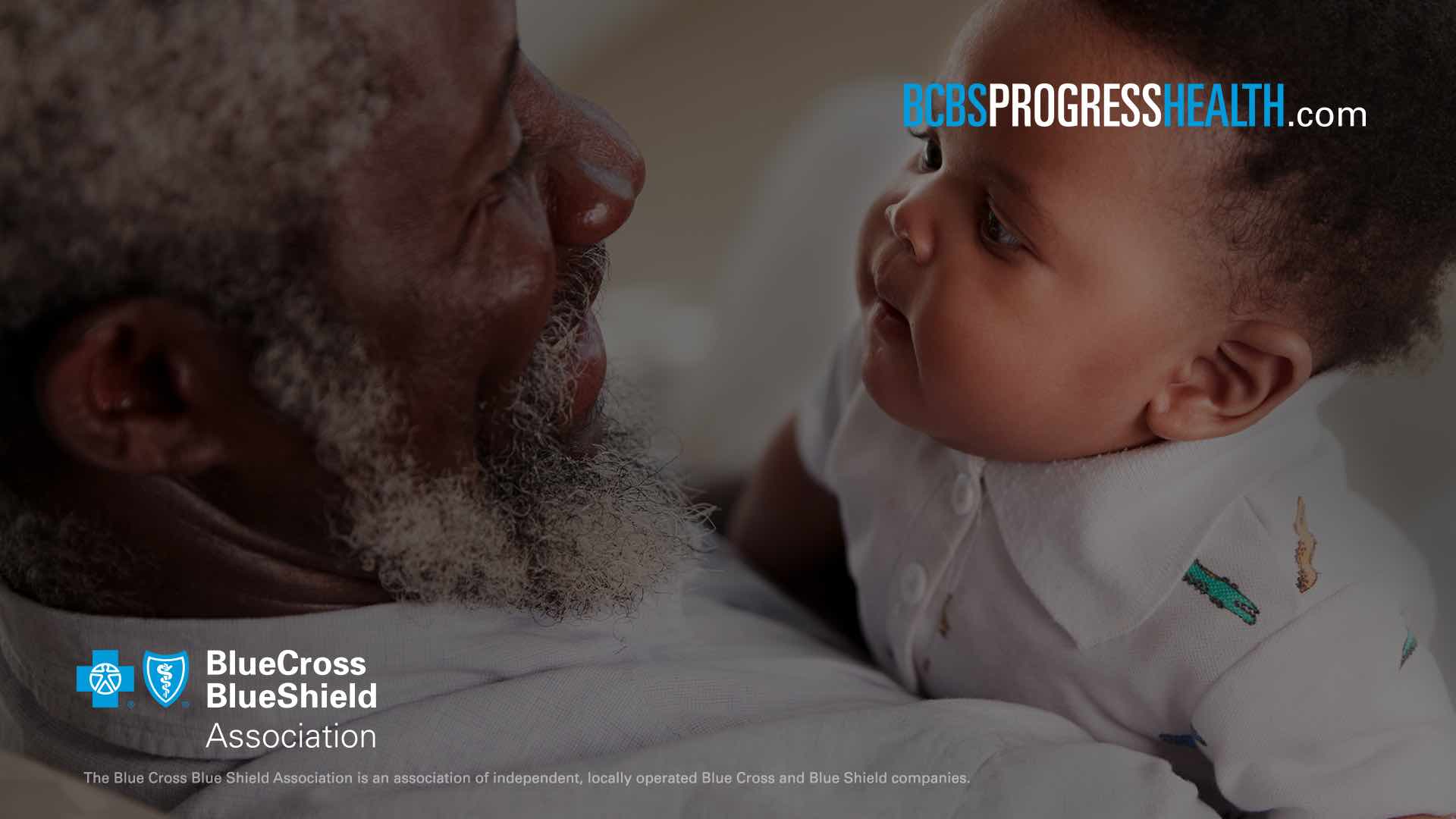| | | | | | | Presented By Blue Cross Blue Shield Association | | | | Vitals | | By Caitlin Owens ·Apr 19, 2021 | | Good morning. Join Axios' Mike Allen and Hope King tomorrow at 12:30pm ET for a Hard Truths event on systemic racism in health care, featuring White House senior adviser for COVID-19 response Andy Slavitt, White House senior policy adviser for COVID-19 equity Cameron Webb, and California surgeon general Nadine Burke Harris. Today's word count is 1,079, or a 4-minute read. | | | | | | 1 big thing: When vaccine hesitancy becomes political |  Data: CDC and New York Times; Chart: Will Chase/Axios The counties with the most vaccine-hesitant residents generally also voted for Donald Trump in 2020 by large margins, whereas the counties with the lowest levels of hesitancy generally also had fewer Trump voters. Why it matters: Your politics don't have anything to do with whether you're vulnerable to the coronavirus if you remain unvaccinated. Driving the news: More than half of U.S. adults have now received at least one dose of the vaccine, a remarkable milestone. - But in some states, appointments are going unfilled and unused doses are starting to pile up — potentially a sign that demand is decreasing.
The big picture: The groups most likely to say they definitely won't get a vaccine are Republicans and rural residents. - But experts caution that it's important not to oversimplify the narrative. For example, many ruby-red Southern states have large Black populations as well as white Republicans.
Between the lines: Plenty of other American adults who haven't yet gotten their shots are planning to — they just don't feel particularly urgent about it. Others are still on the fence. - "What I'm really worried about is building up this identity of, 'if you're a Republican, you don't want the vaccine.' I think A) that's not correct and B) it's really, really harmful," said Ashish Jha, dean of the Brown University School of Public Health.
What we're watching: The federal government is currently allocating vaccines to states based on population. - This strategy may no longer make the most sense, although vaccine supply is likely not going to be a problem in any state in the near-term future.
Go deeper. |     | | | | | | 2. The states hit worst by the pandemic |  Data: Hamilton Place Strategies; Chart: Will Chase/Axios When the coronavirus pandemic hit, the job facing governments was to save lives and save jobs. Very few states did well on both measures, while New York, almost uniquely, did particularly badly on both, Axios' Felix Salmon reports. Why it matters: The jury is still out on whether there was a trade-off between the dual imperatives; a new analysis from Hamilton Place Strategies shows no clear correlation between the two. The big picture: New York was hit very hard early in the crisis, before doctors knew as much as they do now about how best to treat the disease. It also has a substantial tourism economy. - By the numbers: New York lost 55,000 jobs per million inhabitants between February 2020 and February 2021. That's the second-worst result in the country, behind only Hawaii.
- The Empire State also saw 3,300 extra deaths per million inhabitants, compared to pre-pandemic expectations. That's about the same as Arizona and Alabama. The worst outcome was in Mississippi, which had 3,800 excess deaths per million.
Of note: Two states — Hawaii and West Virginia — had negative excess deaths in the first year of the pandemic. Overall, fewer of their residents died than had been expected. Alaska also came very close. - Two other states — Idaho and Utah — saw net job gains, rather than losses.
The bottom line: America as a whole saw 658,431 more deaths than expected between February 2020 and February 2021. That's about 2,200 excess deaths per million people. - The country also lost 9.8 million jobs, or about 30,000 jobs per million people.
|     | | | | | | 3. The all-purpose disease pathogen test |  | | | Illustration: Sarah Grillo/Axios | | | | Faster and cheaper genetic sequencing can give us the ability to test for almost any infectious pathogen — provided we use it, Axios' Bryan Walsh reports. Why it matters: Doctors never identify the causative agents of many infections, leading them to misdiagnose patients and even miss the early emergence of new diseases, but wider use of genetic sequencing promises a future in which no virus will be left behind. Driving the news: On Friday, the White House announced the federal government would invest $1.7 billion from the American Rescue Plan to "improve the detection, monitoring and mitigation" of COVID-19 variants, including funding to shore up the country's lagging genomic sequencing efforts. Context: More widespread genetic sequencing could be the key not just to tracking coronavirus variants, but identifying mysterious pathogens of all kinds: viruses, bacteria, fungi, parasites and more. - One example: The Virginia-based startup Aperiomics has developed a massive database of the genetic sequences of tens of thousands of known pathogens.
- When doctors are presented with an infection of unknown cause, they can use shotgun metagenomic sequencing — decoding the genes of all organisms in a biological sample — and compare the findings against Aperiomics' list.
- If unknown genetic sequences show up, it's a decent clue that doctors could be dealing with something new.
What to watch: How quickly improvements in genetic sequencing bring down the costs of such tests, and whether insurance companies will cover them. |     | | | | | | A message from Blue Cross Blue Shield Association | | Connecting vulnerable seniors with vaccines | | |  | | | | Blue Cross and Blue Shield companies nationwide are using data and local relationships to help vaccinate millions of at-risk seniors living in underserved and vulnerable communities where COVID-19 vaccininations are most inequitable. See how. | | | | | | 4. The rise of vaccine card scams | | People are buying, making and selling fake vaccination cards, including on sites like eBay, the Washington Post reports. Why it matters: These scams could undermine the national vaccination effort, and potentially lead to more coronavirus infections — including among vulnerable populations. - The FBI has warned that anyone who makes or buys a fake vaccine card is breaking the law, and North Carolina Attorney General Josh Stein told the Post that he would consider prosecution.
Between the lines: As more schools, workplaces and businesses require students, employees and customers to be vaccinated, the use of fake cards is unlikely to go away. - This fraud also may bolster the argument for "vaccine passports," or some kind of digital vaccine verification that is more secure.
My thought bubble: Real coronavirus vaccine cards — which come with an actual shot — are literally free and increasingly easier to get. Paying for a fake one online seems like a lot. |     | | | | | | 5. Catch up quick |  | | | Illustration: Aïda Amer/Axios | | | | The White House is launching a targeted media blitz today to promote President Biden's new deadline for states to make all U.S. residents 16 and older eligible for the COVID-19 vaccine, an administration official tells Axios' Sarah Mucha. NIAID director Anthony Fauci said he expects a decision on resuming the Johnson & Johnson vaccine by Friday after a CDC panel meets to discuss the issue, he told NBC's "Meet the Press." Michigan Gov. Gretchen Whitmer (D) told "Meet the Press" that she isn't instituting a new lockdown due to a combination of factors, including the state's strong mitigation measures and pushback from Republicans. The global toll of confirmed deaths from COVID-19 surpassed 3 million on Saturday, according to data from Johns Hopkins University. The CEO of the Serum Institute of India, the world's largest maker of vaccines, asked Biden on Friday to lift a U.S. export embargo on raw materials for vaccines, saying it is hampering vaccine production in other parts of the world. |     | | | | | | A message from Blue Cross Blue Shield Association | | Reducing racial health disparities | | |  | | | | The coronavirus pandemic has magnified racial health disparities to deadly proportions. Learn how Blue Cross and Blue Shield companies are working in local communities to reduce disparities and address social determinants of health. | | | | | | Axios thanks our partners for supporting our newsletters.
Sponsorship has no influence on editorial content. Axios, 3100 Clarendon Blvd, Suite 1300, Arlington VA 22201 | | | You received this email because you signed up for newsletters from Axios.
Change your preferences or unsubscribe here. | | | Was this email forwarded to you?
Sign up now to get Axios in your inbox. | | | | Follow Axios on social media:    | | | | | |
No comments:
Post a Comment